This Week in Games
Interview with Nobuyuki Okajima, Producer of Full Metal Schoolgirl
by Jean-Karlo Lemus,
Welcome back, folks! This past weekend was Kumoricon—and my first time covering it professionally! I have a few interviews from the convention that'll go up shortly; it was a fun experience and a delight to speak to the figures I did. I did miss hosting panels (I really can't afford to miss the application period next year), but that's something to worry about next time. On a video game-related note, Nintendo 3DS Street Passes are still very much kept alive by Kumoricon's crowd; I not only ate my lunch next to a pair of Kirby fans who were very excited to see my Mii's Meta Knight helmet (we had a fun conversation about Kirby Air Riders, there's a lot of excitement for it!), I actually walked away with ten whole Street Passes the first day of the convention! Meanwhile, at Twitchcon (which is supposed to be for a video game streaming website), the entire weekend granted me... two Street Passes.
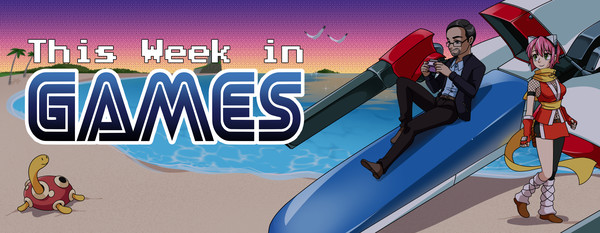
Dragon Quest Creator Awarded the Order of the Rising Sun
I don't want to diminish our beloved uncle Gō Nagai's win of the Order of the Rising Sun, one of the most prestigious awards that can be granted to civilians in Japan. Nagai's contributions to culture worldwide are timeless, as are his characters like Devilman, Mazinger Z, and Cutie Honey (and Kekkō Kamen, can't forget Kekkō Kamen!). His works are pure id, and the man has had fun doing what he does for decades. We're blessed to have him with us, and this should serve as a sign that anyone even remotely interested in the aforementioned works should check them out, right now. Yes, Kekkō Kamen too.
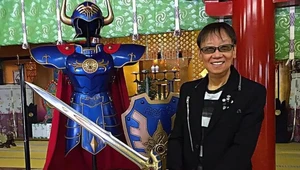
なんと、本日、旭日小綬章をいただくことが出来ました。 pic.twitter.com/4EQsz10Q9O
— 堀井雄二 (@YujiHorii) November 3, 2025
Horii's claim to fame throughout his life has been his involvement in creating the beloved Dragon Quest series, a monumental RPG franchise that has transcended gaming alone and has become a full-fledged Japanese institution. The HD-2D remakes of the first two games have just been released, and you can expect that mainstream audiences all over the country lined up in droves to pick them up. How could they not? Dragon Quest is a central part of Japanese childhood! There is a long-standing urban legend that the Japanese parliament passed a law prohibiting the release of a Dragon Quest on a weekday because of how everyone would take off from work or school to play it—it's actually complete bunk. However, Square Enix still releases the games on Saturday because of old agreements they had made with Nintendo back in the day. Granted: the Dragon Quest games weren't always such huge successes. It wasn't until the third title, Seeds of Salvation, that Dragon Quest went on to become a million-unit-plus selling franchise. And Dragon Quest III indeed touched so many lives that its influences are inescapable, if you know where to look; plenty of isekai anime ("too many," in my book) just straight-up use the Dragon Quest interface as their in-universe "magic system."
There's a lot that went into Dragon Quest's claim to fame; having superstar-artist Akira Toriyama (RIP), fresh off his fame for working on Dr. Slump, working on the series art was a major factor. And it's important to note that Dragon Quest wasn't the first RPG made in Japan, either. What made Dragon Quest go down a lot smoother was its interface. RPGs were actually really popular in Japan during the 1980s—the ongoing success of the Wizardry series, plus the exclusive updated re-releases of the Ultima games, should point to that. The problem was that localizing these games was challenging, and they were often tied to PCs that were never released in Japan. Plus, there was the problem with interfaces: RPGs in those days were complicated and usually incorporated all of the keys on a standard keyboard, like using "Z" to [Z]ap an enemy with a spell, "K" to [K]limb stairs, or R to [R]ide a vehicle or horse. So, while the audience was starved, language, price, and platform barriers were in place. And even if you made your own game in Japan, you'd have to figure out how to synthesize the entire experience of interacting with the game into something usable.

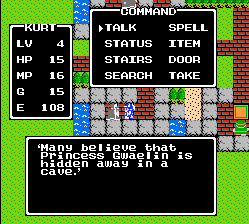
It's hard to explain to neophytes what the appeal of Dragon Quest is, because the general perception is that the series is rather stodgy, set in its ways, and slow to innovate. And yet, the series varies wildly throughout its entirety. As early as the third game, it already leans on the fourth wall regarding the series convention of Kings, which is that you save your game (your player character is crowned king and you're trapped on your throne, saving files for random NPCs until you can hatch an escape). And the fourth title does the same for Dragon Quest's humble shopkeepers, courtesy of the beloved Torneko Taloon's unique chapter. Dragon Quest V: Hand of the Heavenly Bride pioneered the monster-taming mechanics that would go on to birth the Dragon Quest Monsters franchise, while Dragon Quest VII: Fragments of the Forgotten Past actually forced players to go through a multi-hours-long puzzle game before getting to any of the RPG battles proper at the outset. It's easy to think of the games as goofy, given Toriyama's art, but the series is rife with melancholic and tragic vignettes—tales of lost love, of redemptions that come too late, of good people seduced by evil, and families torn asunder. There's a reason Dragon Quest V has endured with so many for so long, to say nothing of the rest of the series.
And Dragon Quest encompasses way more than just video games; the Adventures of Dai spin-off anime became iconic enough in its own right to retroactively inspire the Dragon Quest games, not the least of which because of the famed "Avan Strash" attack in the manga (and it possibly influencing the series-famous Gigaslash). There's also the beloved The Mark of Erdrick manga, which I helped cover during the recent Fall Manga Preview Guide. There's a lot to check out if you want to try the Dragon Quest games. For recency's sake, there are the HD-2D remakes of the first three games; the compilation of the first two Dragon Quests released just last week, and the HD-2D remaster of Dragon Quest III only came out last year. They're phenomenal introductions to the series. Dragon Quest XI: Echoes of an Elusive Age is also widely available on multiple platforms, and is itself a wonderful title. I've mentioned Dragon Quest IV: Chapters of the Chosen and Dragon Quest V; the DS ports of those games are likely a bit hard to track down, but you can also play them on mobile devices (and would be very rewarded in doing so). I'd also highly recommend finding some way to play Dragon Quest VIII: Journey of the Cursed King; the original PS2 version has a much richer orchestral soundtrack, but the 3DS remake has so many unique offerings like extra characters, outfits, story sequences and a highly-demanded alternate ending (the fans know what I mean!) that it might be the better version all-around.
Likely, the upcoming Dragon Quest XII will be the last Dragon Quest title that Horii gets to work on; Toriyama has sadly passed away, after all. There's also an upcoming remake of Dragon Quest VII on the way, which we'll likely hear more about in the future. Also, I urge people to check out The Hokkaido Serial Murder Case, given the franchise's legacy; we wouldn't have Dragon Quest without it! There are literal decades of influence and love in the Dragon Quest series. It's touched my life, so I can only applaud Horii for earning recognition over it.
Love and Deepspace Fans Cry Foul Over Literal Dark Skin Erasure
We've talked about Love and Deepspace in the past; while not quite mainstream, Love and Deepspace is an extremely popular otome game wherein the protagonist interacts with a quintet of hunky, hunky guys. While the five men have established personalities and dynamics, it's also possible to earn "Mythos," which explores unique angles with these characters, such as one of the characters being an ocean god or a half-dragon. Love and Deepspace also leans into its own reputation with its audience; much ado has been made of the game having an in-game period tracker and a tête-à-tête mode where the in-game paramours introduce themselves to your family and friends. Yes, you're intended to hold your phone up to friends and family while a virtual boy introduces himself as your virtual boyfriend. It's easy to make fun of the game, but it's making money hand over fist and it has an intensely loyal fanbase; this past weekend at Kumoricon featured a ton of artists at artist alley selling fan-made prints, charms and pillowcases of the five LaDS boys. So, folks love the game; it has an ardent fan base, and people are really emotionally invested in it. Where's the problem?
Well, there's an issue with the game's graphics—specifically, as a result of character customization. Dark skinned characters look bad in-game. As in, barely visible.
Thank you @Love_Deepspace for giving us darker skin players NO LIGHTING in this new card😒 pic.twitter.com/innx60E7et
— MadameSynclair (@MoonkissedMuse) October 11, 2025
Infold Games (the developers of Love and Deepspace put a ton of elbow grease into the visuals, so much so that it's easy to forget that this is a mobile game. I think it's quite apt to compare the efforts to Square Enix's efforts, it's just that good a game (and hefty—LaDS takes up a ton of space on phones). But evidently, a lot of that effort isn't put into making darker-skinned characters look right under lighting; as can be seen in the screenshots above, the dark-skinned player character is almost invisible compared to Rafayel. And it's not a unique problem, either; lots of other players with dark-skinned player characters note how their characters are effectively invisible in their own cutscene. It's a crapshoot if your character even renders in the light.
Skin tone has been an issue in media for a long time—not just in video games, but in visual media going back ages. Famously, old rubber-hose cartoon characters (which premiered in black-and-white) would design old characters to look like minstrels for their features to be visible. The problem being, well, it's a minstrel act; many classic cartoon characters are effectively blackface caricatures. And that's why Mickey Mouse wears white gloves—and by extension, many long-running characters based on that era of cartoon characters, like Sonic the Hedgehog. Black skin has also proven "difficult" for television, film, and make-up; basically, you have to have a completely different lighting set-up for black skin to look "right" on film, hence why many films featuring Black characters use green and purple lights or make-up (it works best with darker skin). The issue is that many people never bother with this; it's a chicken-and-egg scenario where a lot of works sidestep having characters with dark skin, so they never have to worry about the difficulties in rendering them. But because they don't perfect the means to render dark skinned characters, when dark skinned characters do appear, you get what happened in Love and Deepspace.
Fans have cried foul over this matter in Love and Deepspace since the game released, and for good reason; the entire fantasy is supposed to be that you are the one getting wooed by these five gentlemen, and people have little reason to not design themselves as themselves, skin tone and all. There's also the visual subtext, given that eyes are drawn to brighter colors in images; darker tones are more easily passed over when you look at a page (and now you know why men tend to have darker skin tones in eromanga: it's so they don't distract the reader). Dark-skinned fans deserve their romantic fantasies, too. To say the least, it's disappointing that Infold has failed them for as long as they have.
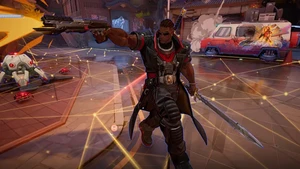
"At Infold Games, we've always believed that our games are shaped together with the players who love them. The community's feedback, discussions, and creative passion are what keep Love and Deepspace evolving and alive.
"We've seen the conversations and truly value everyone who has taken the time to share their experiences and thoughts. Every comment, whether it's about visuals, storytelling, or representation, helps us better understand how our work resonates across different perspectives and cultures.
"Love and Deepspace is, at it's heart, a shared world of emotion and imagination. We hope to keep building it hand in hand with our players, learning and improving together along the way."
I appreciate the candor on Infold's behalf in their response, but I similarly share the disappointment of the fanbase with this, because again: the LaDS community loves their game. I can't begin to impress upon people how much passion LaDS fans have towards it, especially after two years--and especially with such a glaring oversight looming over it all. The good news, folks at least have alternatives in the form of Voltage Inc's offerings, given their line-up of otome-oriented titles like Court of Darkness and The Princess in the Mirror. Many of these titles are also available on Steam and Nintendo's eShop, too--emphasis on "many," Steam lists no less than 17 titles (I'm amused by Oops, I Said Yes?!). We will keep readers posted regarding this story; as always, This Week in Games stands by otome games and the otome-enjoying audience. People deserve the fantasy of being fawned over, regardless of their skin tone. Because everyone deserves to be loved.
Interview with Nobuyuki Okajima, Producer on Full Metal Schoolgirl
Nobuyuki Okajima is best known for their work on the Earth Defense Force and Oneechanbara titles, but recently he served as lead producer on another light-hearted, tongue-in-cheek action game in the form of Full Metal Schoolgirl. Anime News Network was granted the opportunity to interview Okajima-san and ask him a few questions about the rollicking schoolgirl sim...
ANN: Would it be fair to consider Full Metal Schoolgirl a spiritual successor to Oneechanbara?
Nobuyuki Okajima: Our company doesn't see Full Metal Schoolgirl as a spiritual successor to Oneechanbara. Full Metal Schoolgirl is primarily a third-person shooter with secondary close-quarters combat elements. Combat in Oneechanbara, on the other hand, primarily involves completely katana-based combat featuring combo attacks. They both share commonalities in that they feature female protagonists and involve close-quarters combat, but we see them as completely different games.
ANN: What inspired the game's Showa-era-styled science fiction setting?
Okajima: The characters being cyborg girls place this game firmly in the science fiction genre, but the setting is the brainchild of the creators, who wanted to depict a vision of our society in which Japan went down the wrong path toward a twisted future. I gave this cheesy cyberpunk concept a thumbs-up, and we went with it.
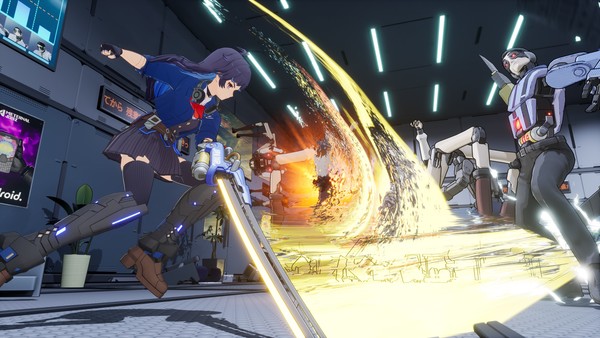
ANN: When making a comedic-spirited game like Full Metal Schoolgirl, how do you know where to draw the line about the humor? What is the limit?
Okajima: We never put much thought into where we should draw the line with our humor. But we do ask ourselves the same questions that anyone else in polite society asks themselves when it comes to their content: Can we go there? Should we pull back a little? We make sure to ask ourselves these questions before making any decisions.
ANN: Were there any concerns about Full Metal Schoolgirl not resonating with an American audience?
Okajima: While we do sometimes make content with users in the United States and other parts of the world in mind, with this game, we focused on making something we ourselves enjoy. You could say that we held firm to the belief that something we love would almost certainly resonate with other people as well.
ANN: Game prices have become a very hot-button issue with gamers in America; do you have a response for gamers who find that Full Metal Schoolgirl is too expensive?
Okajima: The notion that cheaper is always better is a concept that applies universally, not just to games. I'm sure that some people will feel that our game is a bit expensive. Still, fortunately, most games nowadays are usually discounted at some point, so I'm sure that even those who initially decided not to buy our game because of its price will eventually find themselves thrashing the offices of Meternal Jobz as one of our Machine Girls. As a fellow consumer, I myself am frequently frustrated at the high cost of everything. This is a problem that is currently affecting Japanese society.
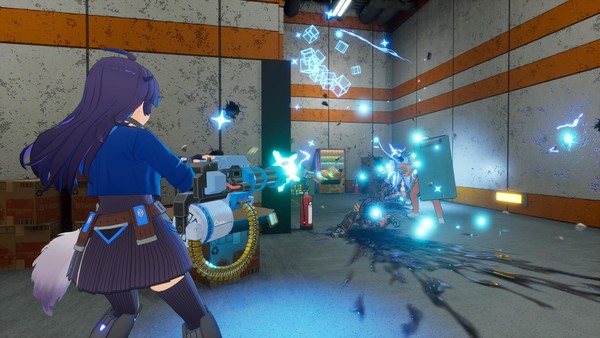
ANN: The theme song to Full Metal Schoolgirl is very evocative of a transformation hero's theme from the 1970s. Were there any other tokusatsu-inspired elements planned for Full Metal Schoolgirl at any point, like a motorcycle or musical instruments?
Okajima: As creators, we grew up watching anime and tokusatsu hero shows from a very young age. They were always a part of our environment, so we naturally absorbed what we watched. Given how deeply ingrained these types of media are in our personalities, I can't deny that they likely influenced our ideas, but we never had any plans to incorporate motorcycles or musical instruments into Full Metal Schoolgirl.
ANN: Are there any fun details about Ryoko and Akemi from their civilian lives that you can share with fans, like their hobbies or school lives?
Okajima: What Ryoko and Akemi do in their civilian lives is a mystery. Not even I know. But they do go to school and have their own hobbies. It would be nice if we one day get the opportunity to depict what their day-to-day lives look like.
ANN: So far, DLC for Full Metal Schoolgirl appears to be mostly cosmetics (costumes and accessories). Will we ever see DLC for new weapons or enemies?
Okajima: I can't say anything specific about any plans we may or may not have for any new weapons or enemies that might be released as part of our DLC.
ANN: Will we ever see more Machine Girls crossing Ryoko and Akemi's paths?
Okajima: After you progress past a certain point in the game, Professor Hakase becomes playable as a character. This isn't DLC, so just play your way through the game.
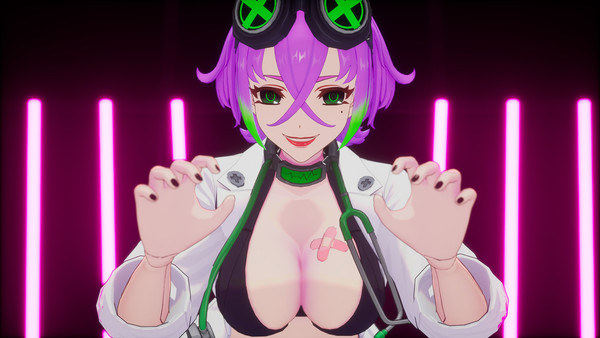
ANN: Do you have any final words for your fans in America?
Okajima I really hope you're enjoying Full Metal Schoolgirl! Achieving the right gameplay balance is always difficult: what you create may be too difficult for some players while also being too easy for others. However, we've included three different difficulty levels that are available from the start, so pick the difficulty that's just right for you and enjoy. The most important thing you need to keep in mind with this game is choosing the right items and weapons: find the ones that are perfect for you, and I'm sure you'll do just fine. Join our Machine Girls and help them take down this shady company!
Many thanks to Okajima-san for taking the time to answer our questions! Folks interested in Full Metal Schoolgirls can also check out our review of the game!
Let's wrap up with some quick tidbits
That'll do it for this week. Rainy autumn is in full swing, and we only have a handful of weeks left in the year. This is a time of year when things can get a bit challenging for some folks, with the holidays approaching. I urge my readers to reach out to their friends and loved ones whenever possible. Also, don't be like me and go outside without a coat with a hood! Be good to each other. I'll see you in seven.
This Week In Games! is written from idyllic Portland by Jean-Karlo Lemus. When not collaborating with Anime News Network, Jean-Karlo can be found playing Japanese RPGs, eating popcorn, watching v-tubers, and tokusatsu. You can keep up with him at @ventcard.bsky.social.
The views and opinions expressed in this article are solely those of the author(s) and do not necessarily represent the views of Anime News Network, its employees, owners, or sponsors.
discuss this in the forum (3 posts) |